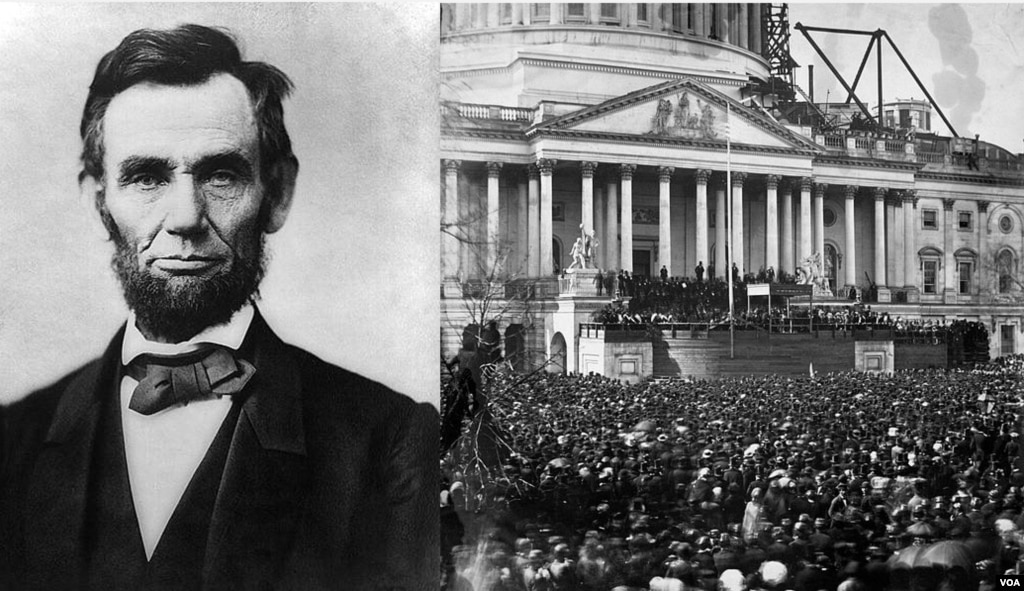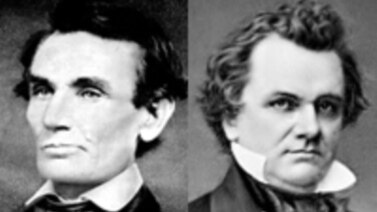
From VOA Learning English, this is The Making of a Nation.
I’m Kelly Jean Kelly.
And I’m Christopher Cruise.
The presidential election of 1860 brought feelings of both hope and fear.
Americans had hope for the future because they would have a new leader. But they feared that even a new president could not hold the nation together. The states of the South were very close to leaving the Union over the issue of slavery.
The election campaign opened in the summer of 1860. Abraham Lincoln was the candidate for the Republican Party -- a new party that opposed slavery. Almost all Republicans were from the northern United States.
Most people did not know very much about Abraham Lincoln, so the Republican Party published many books and pamphlets about him. They told the story of a poor farm boy who educated himself. Through hard work and honesty, they said, he had become a candidate for president.
Lincoln’s supporters organized a loud and colorful campaign. It included marching bands and signs. But Lincoln was silent. He said, “It has been my decision since becoming a candidate to make no speeches. I am here only to see you and to let you see me.”
The Democratic Party candidate was very different. Stephen Douglas spoke in nearly every state. He campaigned hard. But his health was poor. And he had trouble getting money.
Within a few weeks, Douglas recognized he had no real hope of winning. Northerners believed he supported slavery too much. And Southerners believed he did not support slavery enough.
Douglas expected Lincoln to win the election. But he knew a Lincoln victory would create problems. If Lincoln became president, some people who strongly supported slavery threatened to take the Southern states out of the union.
So Douglas turned his efforts to a campaign for the union itself. He said, “The election of a man to the presidency by the American people, under the Constitution, is no reason for any attempt to dissolve this glorious nation.”
Two other major candidates also campaigned for president. Southern Democrats nominated John Breckinridge of Kentucky. And a group called the Constitutional Union Party nominated John Bell.
Election Day was November 6. The popular vote was close; the vote in the Electoral College was not. Lincoln received 180 electoral votes. Breckinridge received 72. Bell received 39. And Douglas received just 12.
Abraham Lincoln would be the new president of the United States. But his victory was bittersweet. Even before Lincoln was inaugurated, the Southern states acted on their threats. They began to leave the Union.
I’m Christopher Cruise.
And I’m Kelly Jean Kelly.
This is The Making of a Nation from VOA Learning English.
Editor's Note: Thank you for the questions about our colleague Steve Ember. He has retired from Voice of America.
Steve gave his voice and talents to a number of programs at VOA. Many listeners learned about world news and US history from Steve. We miss him, too, and we wish him well.
